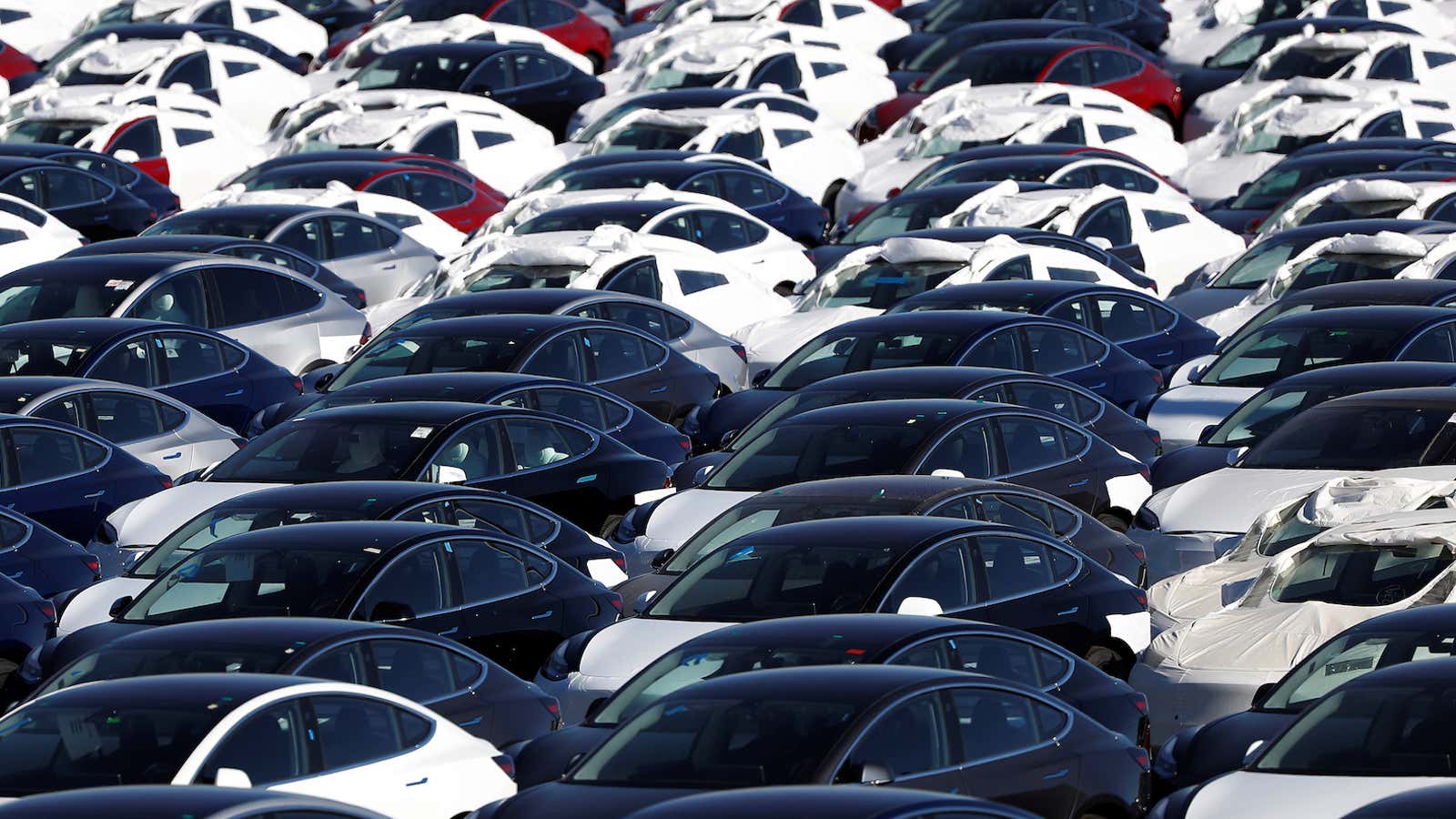Shiploads of shiny new Tesla Model 3 sedans—at least three giant container ships’ worth—are racing against the clock across the Pacific Ocean to arrive at Chinese ports before March 1, when higher tariffs would kick in with the expiration of the temporary trade-war truce between the US and China.
Bloomberg reports (paywall) that truck after truck has been bringing Teslas to Pier 80 in San Francisco, where the cars are joining thousands of others in neat rows in a large parking lot before being loaded onto ships bound for China.
The 200-meter-long vehicle carrier, Glovis Symphony, was to arrive in Shanghai today (Feb. 13) after docking at Tianjin earlier this week. Another two carriers, the Morning Cindy and Emerald Ace, are expected to arrive in China next week.
The Model 3, Tesla’s most affordable, is aimed at bringing the luxury vehicle within reach for the average consumer, and tariffs and levies resulting from the US-China trade war threaten to make it more expensive globally.
Donald Trump suggested yesterday (Feb. 13) that he would consider extending the trade-deal deadline if talks between the two countries go well, potentially staving off what the US has said will be an increase from 10% to 25% in tariffs on $200 billion in Chinese goods. If the deadline is indeed extended, the mad trans-Pacific dash would have been unnecessary. Waiting remains an expensive gamble that CEO Elon Musk appears unwilling to take.
Tesla’s scramble reinforces the importance of its new factory in Shanghai in insulating the company from the trade war. The Gigafactory, Tesla’s first factory overseas and the first fully foreign-owned car factory in China, is expected to start production in the second half of this year. It will focus on manufacturing Model 3 and Model Y cars for sale in the “greater China region,” according to tweets from Musk.
This is not the first time ships have had to race across the high seas in an effort to beat the clock on steep tariffs. Last August, the 299-meter cargo ship Peak Pegasus carrying 70,000 tons of soybeans worth about $20 million headed for China at top speed, only to miss a midnight deadline by 30 minutes. It ended up sailing in circles for days and only started unloading its cargo more than a month later—with the hefty tariffs slapped on. Exporters in the UK also are scrambling to ship their goods around the world as fears of a no-deal Brexit grow.
